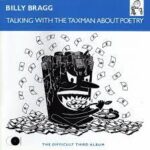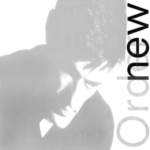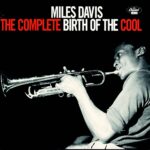 Billy Bragg’s third studio album, “Talking with the Taxman About Poetry,” released in 1986, showcases the singer-songwriter’s political and socially conscious songwriting at its finest. Known for his distinctive blend of folk, punk, and protest music, Bragg delivers a powerful and thought-provoking collection of songs that tackle a wide range of topics, including politics, love, and societal issues.
Billy Bragg’s third studio album, “Talking with the Taxman About Poetry,” released in 1986, showcases the singer-songwriter’s political and socially conscious songwriting at its finest. Known for his distinctive blend of folk, punk, and protest music, Bragg delivers a powerful and thought-provoking collection of songs that tackle a wide range of topics, including politics, love, and societal issues.
The album opens with the energetic and anthemic “Greetings to the New Brunette,” a song that combines Bragg’s heartfelt lyrics with catchy melodies. It sets the tone for the album, showcasing Bragg’s ability to combine personal and political themes seamlessly. Throughout the album, Bragg’s unique and impassioned vocal delivery draws listeners in and gives the songs an authentic and relatable quality.
One of the highlights of “Talking with the Taxman About Poetry” is the exceptional songwriting. Bragg’s lyrics are sharp, poetic, and often tinged with wit and humor. Tracks like “Levi Stubbs’ Tears” and “Greetings to the New Brunette” tell poignant and relatable stories, while songs like “There Is Power in a Union” and “Ideology” delve into political and social commentary. Bragg’s ability to capture the struggles, hopes, and dreams of everyday people is one of his greatest strengths as a songwriter.
Musically, the album combines folk-inspired acoustic guitar with a punk spirit, creating a sound that is both energetic and intimate. Bragg’s guitar playing is simple yet effective, providing a solid foundation for his heartfelt lyrics. The stripped-down arrangements allow the focus to remain on the storytelling and the emotional impact of the songs.
The album also benefits from the production work of John Porter, who manages to capture the raw energy of Bragg’s live performances while maintaining a polished sound. The songs have a warmth and clarity that allows the lyrics to shine through, further enhancing the impact of Bragg’s messages.
“Talking with the Taxman About Poetry” addresses a wide range of social and political issues, including class struggle, worker’s rights, and love in the modern world. Bragg’s lyrics are passionate and thought-provoking, offering a sharp critique of the status quo and advocating for change. The album serves as a testament to Bragg’s commitment to social justice and his belief in the power of music to inspire and effect change.
In conclusion, Billy Bragg’s “Talking with the Taxman About Poetry” is a captivating and impactful album that showcases his prowess as a singer-songwriter and political commentator. With his poetic lyrics, heartfelt delivery, and powerful storytelling, Bragg creates a collection of songs that resonate with listeners on both an emotional and intellectual level. The album’s timeless themes and socially conscious messages make it a significant and enduring contribution to the folk and protest music canon.
This post has already been read 308 times!

























